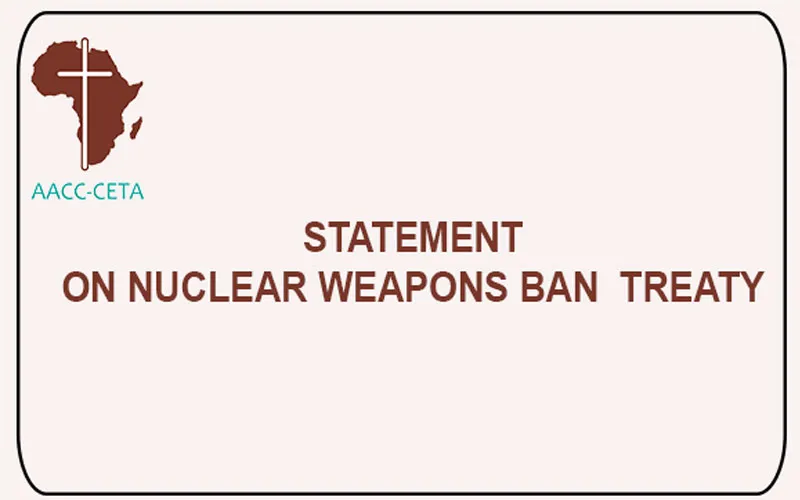“The accidental or deliberate detonation of a nuclear weapon would cause severe, long-lasting and far-reaching harm on all aspects of our lives and our environment throughout the world,” the Church leaders say, and add, “Further, these technologies are part of structures and systems that bring about great suffering and destruction.”
TPNW, the first international treaty to comprehensively ban nuclear weapons entered into force 22 January 2021 with ratification of 51 states, none of them nuclear powers.
Adopted by the United nations in 2017, the treaty prohibits its signatories from producing, stockpiling, selling and using nuclear weapons.
Nations that signed the treaty reportedly cite “the catastrophic humanitarian consequences that would result from any use of nuclear weapons,” including by accident or miscalculation, saying those effects would transcend international borders.
In their statement, the AACC leaders laud the treaty, which they say addresses the impact of nuclear weapons on women and indigenous peoples, and the importance of victim assistance and healing environmental harms “in a groundbreaking way.”
“This treaty ushers in the possibilities of heralding a new world free of the threats and tensions that have been characterized by the battle to develop and hold nuclear weapons. This has been the cause of major tensions and threats of widespread devastation,” the Church leaders say in a statement signed by their General Secretary, Rev. Fidon Mwombeki.
They add, “At a time when the world desperately needs fresh hope, the TPNW inspires us to continue to work to fully eliminate the threat of nuclear weapons, and to create conditions for peace, justice, and well-being.”
The AACC leaders recount the legacy of hibakusha, the survivors of the two nuclear attacks that were launched at Hiroshima and Nagasaki at the end of World War 2 in 1945, saying, “Their courage and perseverance serve as the inspiration, guidance, and moral foundation in the quest for a world free from nuclear weapons.”
Apart from pushing the world nuclear powers to support the ban on weapons, AACC has called on people of goodwill to join the first meeting of the State parties planned in the treaty to take place this year.
“We must not be discouraged at the slow pace, but become even more determined to push for a better world. This is part of our mission work and we know God is on our side,” the AACC leadership says.








